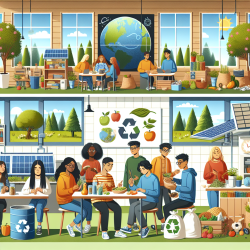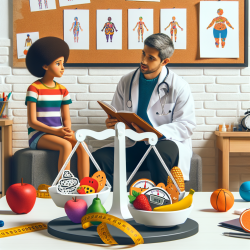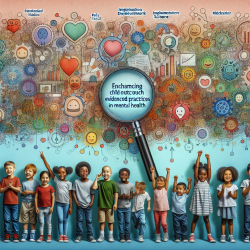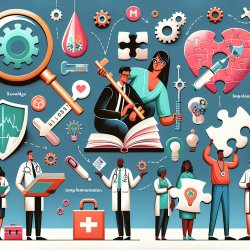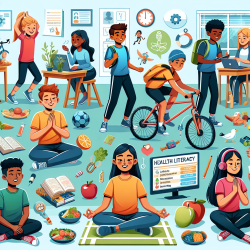In recent years, the intersection of climate change education and food waste reduction has become a focal point for educators aiming to instill sustainable practices in students. The research article "New Jersey Leaves No Bite Behind: A Climate Change and Food Waste Curriculum Intervention for Adolescents in the United States" provides valuable insights into how educational programs can effectively address these critical issues among adolescents. This blog post will explore the key findings of the study and offer guidance for practitioners looking to enhance their educational strategies.
The Importance of Climate Change Education
Food waste is a significant contributor to climate change, with substantial environmental, economic, and social implications. In the United States, approximately 40 percent of the food supply is wasted annually, contributing to greenhouse gas emissions and resource depletion. Educators have a unique opportunity to address this issue by integrating climate change education into school curricula.
Key Findings from the NJLNBB Program
The New Jersey Leaves No Bite Behind (NJLNBB) program was designed to educate fifth-grade students about food waste and sustainable behaviors. The study utilized a cluster randomized controlled design to assess the program's effectiveness. Key findings include:
- Increased Knowledge: Students who participated in the NJLNBB program demonstrated significantly higher knowledge about climate change concepts compared to those in the control group.
- Improved Social Norms: The program positively influenced students' perceptions of social norms related to climate-friendly behaviors.
- Enhanced Behavioral Intentions: Participants showed greater intentions to adopt sustainable practices post-intervention.
- Perceived Behavioral Control: Students reported increased confidence in their ability to engage in climate-friendly behaviors.
Implementing Effective Educational Strategies
The success of the NJLNBB program highlights several strategies that educators can implement:
- Multimodal Learning: Incorporate videos, hands-on activities, and interactive games to engage students through various learning modalities.
- Theory-Based Frameworks: Utilize frameworks like the Theory of Planned Behavior to design programs that effectively influence knowledge, attitudes, and behaviors.
- Cultural Relevance: Consider demographic factors such as race and ethnicity when designing interventions to ensure they resonate with diverse student populations.
- Sustainability Focus: Emphasize the long-term impacts of sustainable practices on both individual and community levels.
The Path Forward: Encouraging Further Research
The NJLNBB study provides a foundation for further exploration into climate change education. Future research could focus on longitudinal studies to assess long-term behavior changes or explore additional factors such as socioeconomic status and parental involvement. By continuing to investigate effective educational strategies, we can better equip future generations with the tools they need to address climate change challenges.
